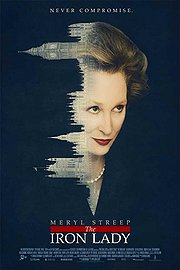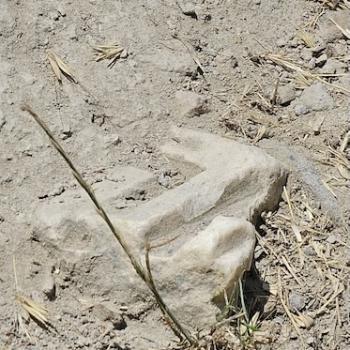It’s not an easy thing to play a legendary strong character like Margaret Thatcher, especially one who still stirs passion and debates amongst the living. But Meryl Streep is more than up to the task. Frankly I would watch Meryl play Swiss Cheese and doubtless the reviewers would all lament that she was cheesy— but then that was the part she was meant to play at the time.
If you want to see the scope and breadth of what magic Meryl can do just take two recent movies in which she inhabited the personality and mannerisms of Julia Child and then Margaret Thatcher in utterly convincing fashion. It must not have been very easy for her to play the latter role considering her own politics are more than a little different from Lady Thatcher’s, but you would never know it from the movie. She plays the role with passion and conviction and the dogged determinism and dogmatic nature that epitomized the first woman prime minister ever in the U.K.
Ann and I had moved to the U.K. in 1977 and watched Margaret Thatcher come into office with some fanfare, and much protest. She put the C back in Conservative and the backbone back in that party. There was nothing weak or meek or vacillating about the iron lady. You either loved her or hated her, and in the Northeast towns like Durham, she was not much loved, especially when she began closing one coal mine after another.
If you are looking for a full life biography in the movie The Iron Lady, you will be disappointed. In fact its basic perspective is of Margaret when she is old, and looking back at things, and indeed even hallucinating a bit that her husband is still around. We have tales from when she was a young girl, and when she ran for office in 1959 and was proposed to by Dennis Thatcher, but much of the focus of course is on when she was prime minister and thereafter, indeed, long thereafter.
Lady Thatcher was prime minister for a remarkable 11 years and bit, before, right through and beyond the Reagan years who was her great ally. The film is one hour and 45 minutes, but it seems longer, as it focuses too much on ‘the old Mrs. Thatcher and her later years’.
At the time of the Academy Awards I was a bit sad that the lead character from ‘the Help’ did not win the best actress award, but when you see the incredible performance of Meryl in this film you will see why she won yet again. She has received the most nominations ever for best actress.
If you have a chance to go see this film on its second run through the discount theaters, it is worth doing for many reasons. Perhaps the chief one is to prompt us all to ask and answer the question— if politics is the art of compromise, was Margaret Thatcher a good politician at all? The problem with a dogmatic ruler is that good politics involves the art of accomplishing what’s possible and for the best given the situation, circumstances, and options. It’s as often about choosing the lesser of several evils than the greater of several goods. If you insist on only acting on the basis of your ideals, you will discover that usually you don’t get much accomplished in office, and haven’t in fact done any good.
The irony about the Iron Lady is of course that her big victory early in her tenure was in the Falkland islands— but how ironic and sad that she took her stand in such an insignificant place, only reminding us that the British Empire had long since set sail for the sunset.
It will always be debated whether Lady Thatcher advanced the cause of women in politics, or in fact did the opposite. What cannot be debated is that she stood by her guns, even when they were antique ones and more than a few times misfired, metaphorically killing off even some of her closest allies and colleagues. The film is also clear about the toll her career took on her family as well. It may be a true and fair presentation, but in the end it does not make Margaret Thatcher a likeable person, regardless of one’s politics.
The problem with iron is that while it is strong for a while, eventually it rusts and then rests. And so it was with Lady Thatcher a child of a green grocer who did well at Oxford and beat the odds and the old boys network to rule the roost in Britain from 1979 to 1990.













